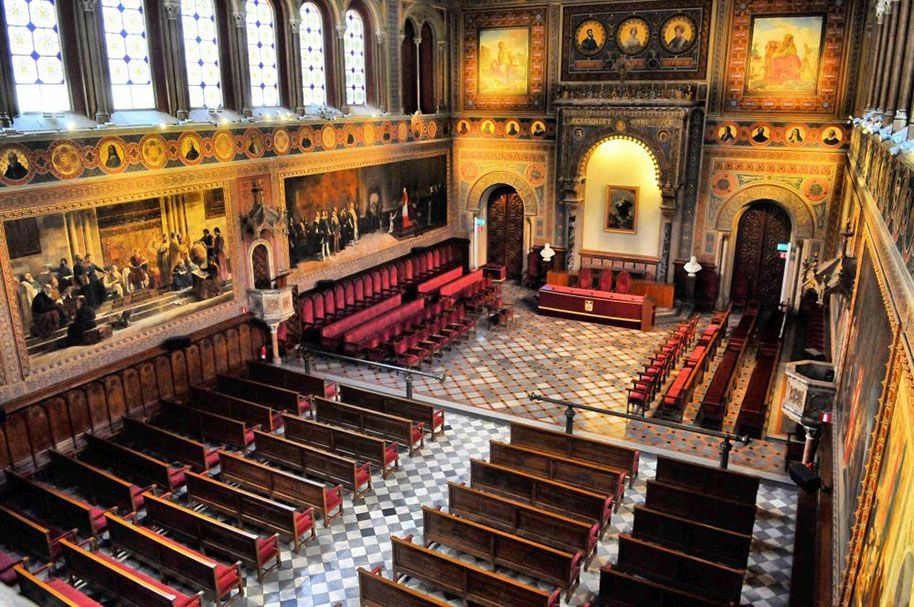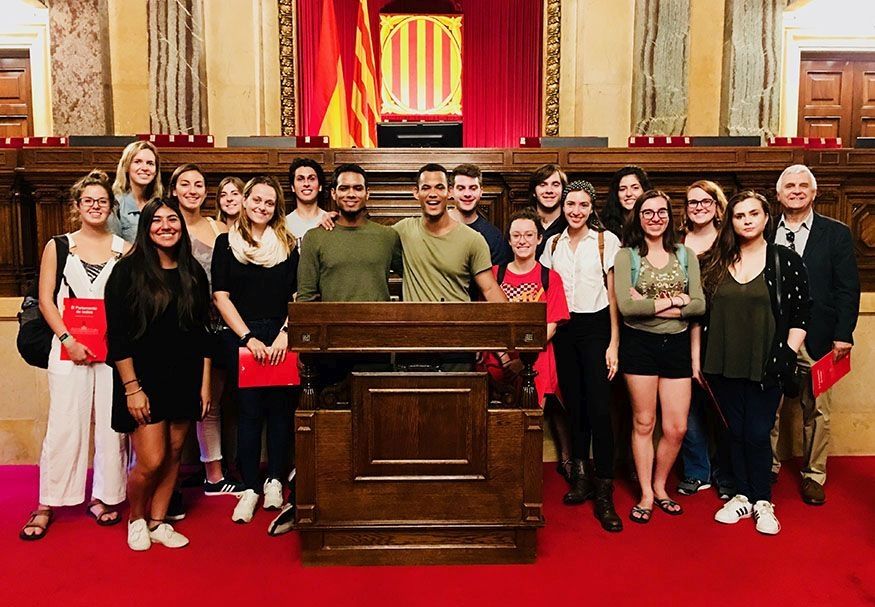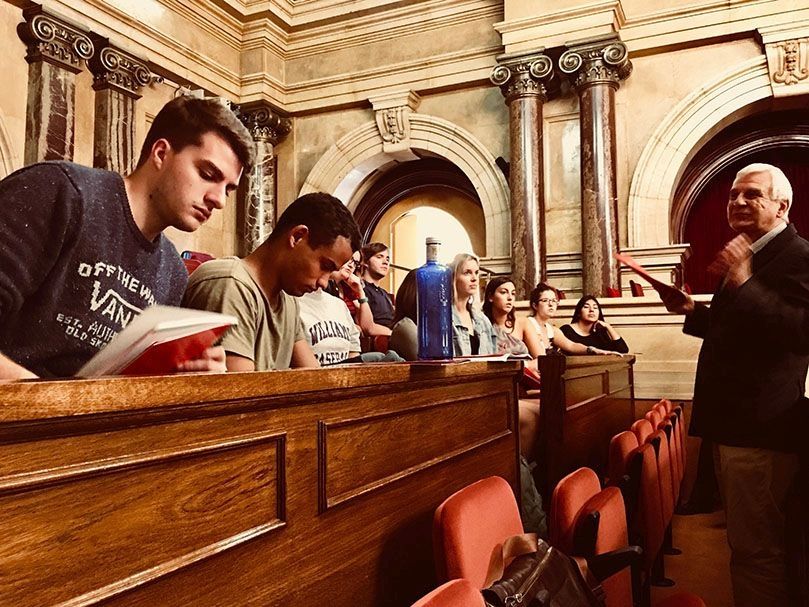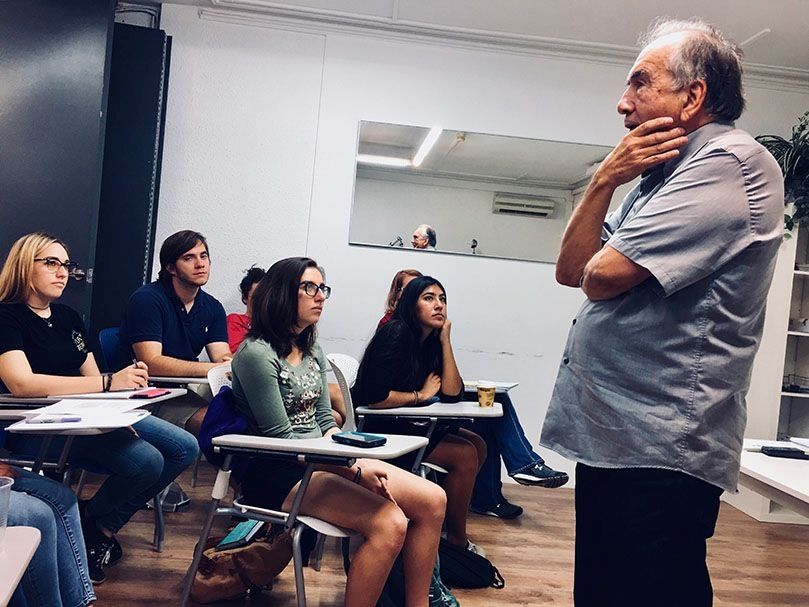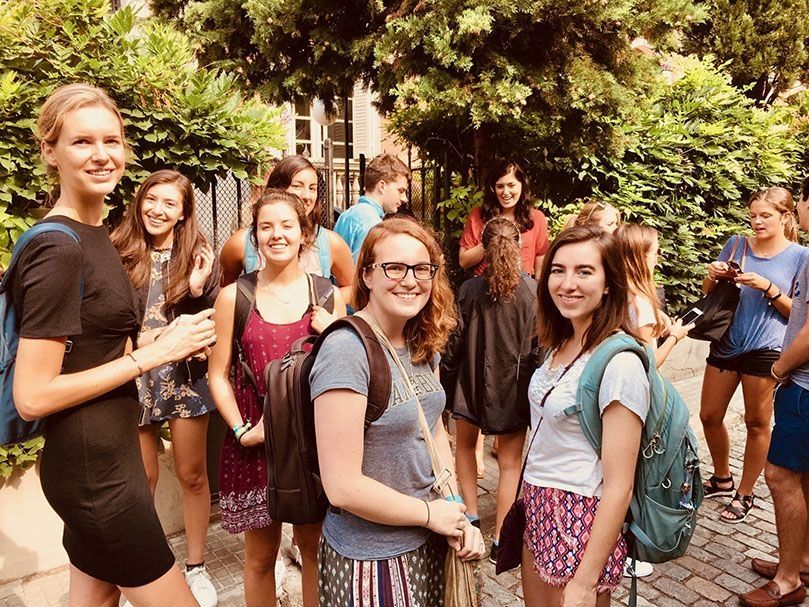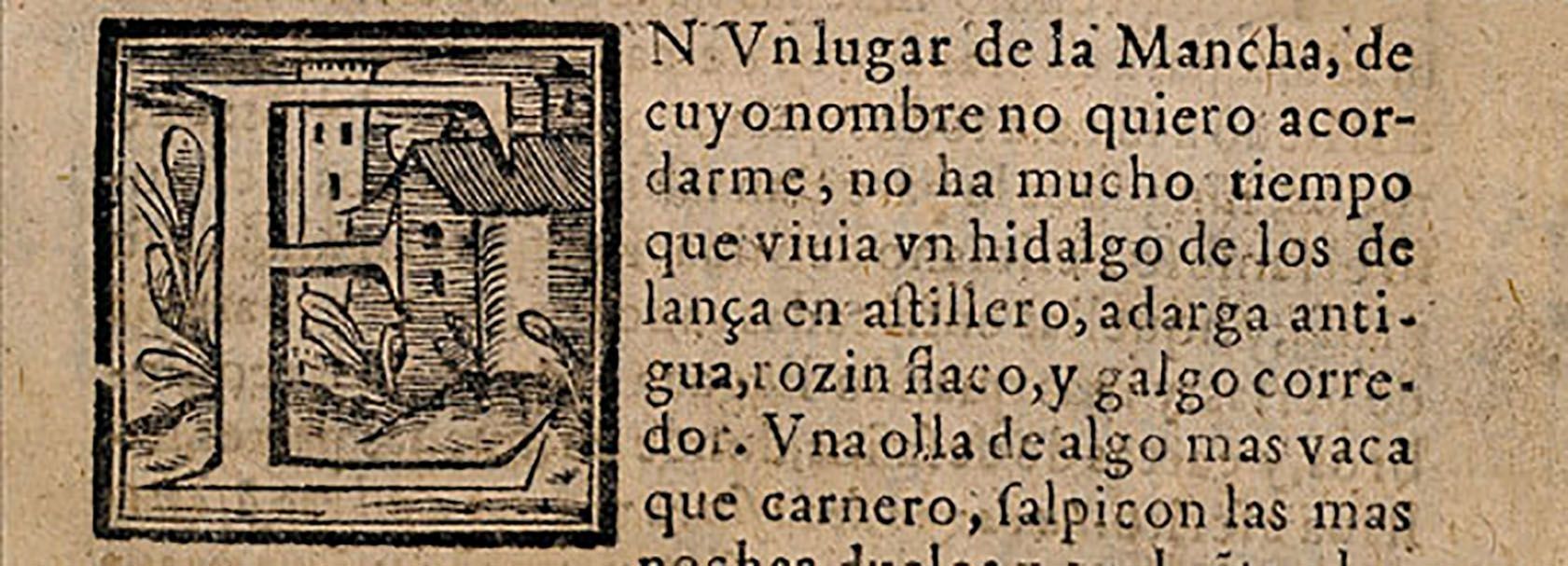Advanced Liberal Arts, Fall 2017, Newsletter II
Poetry and education
We live in an accelerated time and are led by the technological changes that are impacting our lives in many ways: from human relationships and communication to work and the easy access of information; and these are only a few examples. Education in general, and the university in particular, is not immune to these profound changes that have pushed our institutions toward a deeper revision of the ways and methods of teaching.
It is easily verifiable that in these past years, the university has diverted its focus toward professional learning and the development of applied investigation. Its primary objective these days seems to be professional training in the diverse and specialized areas of the job market. But we cannot ignore that there are also many voices that have recently been raised alerting and asking us if we want, and if we can afford, a university that is mainly dedicated to professional development, therein marginalizing another type of intellectual training that permits us to educate committed citizens –those capable of understanding the present, judging it critically and thinking about a future for themselves and those around them– in a society that should be more free and reasonable. An important number of books and articles reminds us these days that without a solid understanding of history, anthropology, art, literature, philosophy and ethics, –these spaces of reflection that humanities can teach us– only with great difficulty can our youth be prepared for the complexities of the adult world. A few months ago, my colleague and friend, Dr. Paul DeYoung, Director of International Programs at Reed College, mentioned that our work as educators is “bringing new and important opportunities to young engaging minds that will lead our future.” Yes, Paul is right: we are educating our leaders, and we want –and need– the best leaders. Excellence, integrity, respect, collaboration: these are CIEE’s core values.
The students of the CIEE Advanced Liberal Arts program at the University of Barcelona (UB) are a good example that this indispensable equilibrium between technical training and a solid knowledge of humanities is not only possible but recommendable. To illustrate this point with a couple of examples, this term Sophie, from Princeton University, is taking the course “Artificial Vision” in the UB Computer Engineering Department and also the courses “The Spanish Narrative in the 20th Century” in the UB Spanish Department and “Literature & Cinema in Spain” at CIEE Barcelona. Meanwhile, Julio, from Columbia University, is taking courses at the UB such as “The History of Economic Thought” and “Philosophy of Law” along with “Photography” and “Masterworks in Catalan Art.” This combination of scientific and technical courses with humanities permits our/your students to incorporate these necessary and complementary perspectives during this important formative period of their lives.
In my opinion, amongst all the humanities studies, few better facilitate the spiritual mission of education like poetry. It is because of this that at CIEE we offer our ALA program students the unique opportunity to attend a conference and poetry recital given by Joan Margarit, one of the most important poets in recent Spanish literature. Margarit’s recital and lecture was the inaugural act of our Semana Cultural (Cultural Week). His poetry teaches us that “culture is not decoration, it is as serious as penicillin, energy or electricity.” He believes that a poem is “an instrument with the same effect of science, which creates structures so that we do not suffer cold nor hunger and that we are cured of our disease.” For Margarit, “there is an inclemency that is not physical, but moral, which makes reference to loss and love, and where there exists no button like those in a furnace that we can push when we are cold”. In the face of this moral inclemency "there are few things that can help except perhaps poetry, paintings, fine arts, philosophy and, for some, religion. It is not much, but we have nothing else.” We can only say thanks to Joan Margarit for visiting CIEE Barcelona and for sharing his words, poems and wisdom with the CIEE ALA students.
Allison, from Vanderbilt University, wanted to share her impression of Joan Margarit’s recital with us:
Alison, Vanderbilt University
It was a once in a lifetime opportunity to hear Joan Margarit recite his poetry. The poems themselves are so rich in both personal and historical context, but they took on even greater meaning for me when I could hear his inflections and the emotion in his voice. Margarit made it clear in his discussion after the recitation that he feels poetry is an incredible outlet for the expression of impossible human emotions. We were then able to ask questions and engage with him and his writing on another level, asking about his inspirations, unintentional meanings, and the experiences that led him to write. I am so grateful to have met a poet who is a part of living Spanish literary history and who took the time to speak with us about his life's work.
Three poems of Joan Margarit (with the authorization of the author):
IT WASN’T FAR AWAY OR DIFFICULT
The time has come
when life that is lost no longer hurts,
when lust is a useless light
and envy is forgotten. It is a time
of wise and necessary losses,
it is not a time for arriving, but for going away.
It is now that love
finally coincides with intelligence.
It wasn’t far away or difficult.
It is a time that leaves me only the horizon
with which to measure solitude.
The time of protective sadness.
TOAST
Closer through that which no one will ever know,
we raise our two glasses.
We see our light, each in the eyes of the other.
A man and a woman, in an instant,
can be wrong.
But the instant will never come back
(translated by Anne Crowe)
LA ÉPOCA GENEROSA
Nuestros, como canciones
que nos hacen llorar, son esos días
que fueron la verdad de los anocheceres
sonrientes y del baño de los niños.
El alegre cansancio de la cena.
Las caras que no han vuelto
a confiar como entonces.
La vida se alimenta de días generosos.
De dar y proteger.
Si se ha podido dar, la muerte es otra.
Related Posts
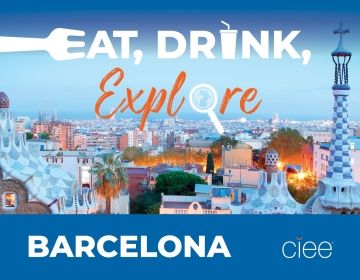
EAT, DRINK, EXPLORE: BARCELONA
BEST FOOD TO EAT IN BARCELONA A study abroad trip to Barcelona isn’t complete without tasting Spain’s famous paella. Paella originates from the Valencian region but is internationally recognized as... keep reading
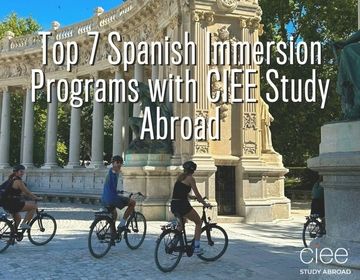
Top 7 Spanish Immersion Programs with CIEE Study Abroad
Let’s be real: There’s no better way to learn Spanish than actually living it. Forget the textbook exercises and Duolingo streaks – envision yourself chatting with locals about fútbol (not... keep reading

How to Study Abroad in Europe: 3 Steps
Europe is the top dog for study abroad students. The latest indication: nearly two-thirds of all U.S. students studying abroad did so in Europe, as reported by the Institute of... keep reading
